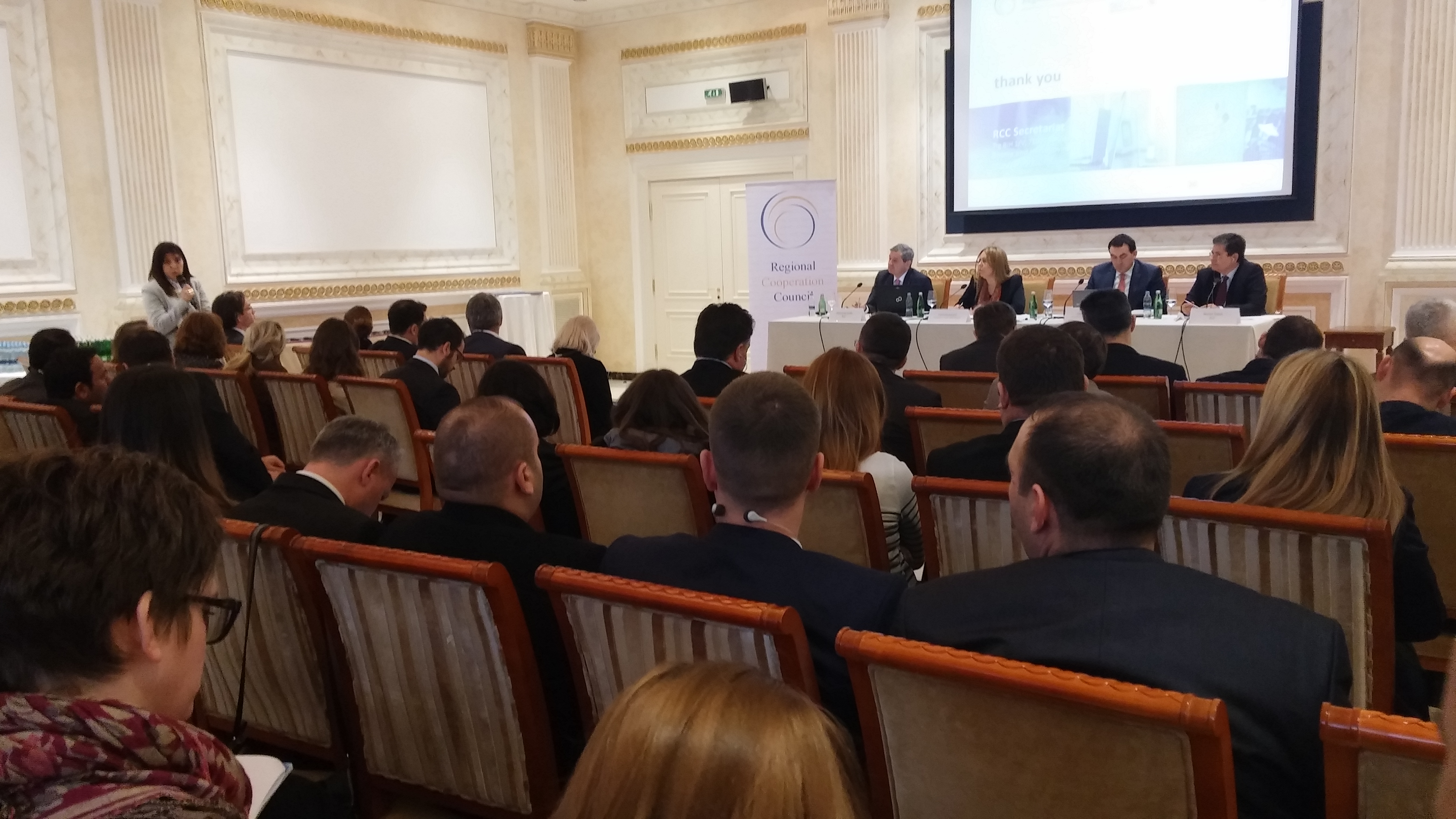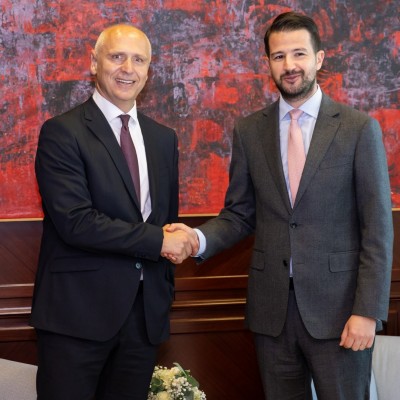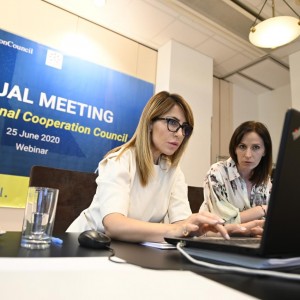Employment and economic situation crucial for the region
03 February 2015

The implementation of the RCC's SEE 2020 strategy, was the focus of the conference in Pristina, organized by the RCC Secretariat in cooperation with the Ministry of Trade and Industry, and the OECD, on 3 February 2015. (Photo RCC/Selma Ahatovic-Lihic)
PRISTINA – The implementation of the Regional Cooperation Council (RCC)’s South East Europe (SEE) 2020 strategy, was the focus of today’s conference in Pristina, organized by the RCC Secretariat in cooperation with the Ministry of Trade and Industry, and the Organisation for Economic Co-operation and Development (OECD). Participants heard about the instruments for measuring the results achieved and the road ahead, and saw a video showing what the people of Pristina think about their future, major problems, advantages, and regional cooperation.
In her opening remarks, Hykmete Bajrami, Minister of Trade and Industry, said that the region should work together, especially when it comes to EU integrations. She gave full support for the SEE 2020 strategy, stressing that its implementation will bring prosperity and development to the region.
“The programme of the new Government is complementary with the priorities of the SEE 2020 strategy,” said the Minister.
Gazmend Turdiu, Deputy RCC Secretary General, presented the initial results of the Balkan barometer research, a comprehensive public opinion and business sentiment survey asking more than 14,000 citizens and 1,400 companies in 7 Western Balkans economies to share their views on main political, social and economic developments.
“The highest number of people (40%) in SEE sees unemployment and economic situation as the biggest problems the regions faces. In terms of employment, out of the people surveyed, 45% are working (employed or self-employed either in the formal or informal sector), 19% are unemployed and 25% are retired. This was just a snapshot of a very comprehensive survey, and the full report will be released in the coming months.”
Edmond Hajrizi, Professor at the University of Business and Technology in Pristina, spoke about the education challenges they are facing and regional advantages and challenges ahead. He said that Kosovo* has 110.000 students, 418 programmes and 3500 academic staff, but that the needs and wishes of the business sector are not served by the education system adequately. He said that the education must be linked strongly with the job opportunities for the young.
The Pristina meeting is a first in a series of similar events throughout the region. Podgorica is scheduled for 5 February, and Tirana for 9 February, with Sarajevo, Belgrade and Skopje to follow.
More than 80 representatives of administration, international organisations, business, academia, and civil society organisations, took part in this event, and shared their views on the overall situation in the region. The meeting has been organised by the RCC Secretariat in cooperation with the Ministry of Trade and Industry, and the OECD as the engaging mechanism tasked to finalise policy assessments in 16 different sectors covered by the SEE 2020 strategy.



